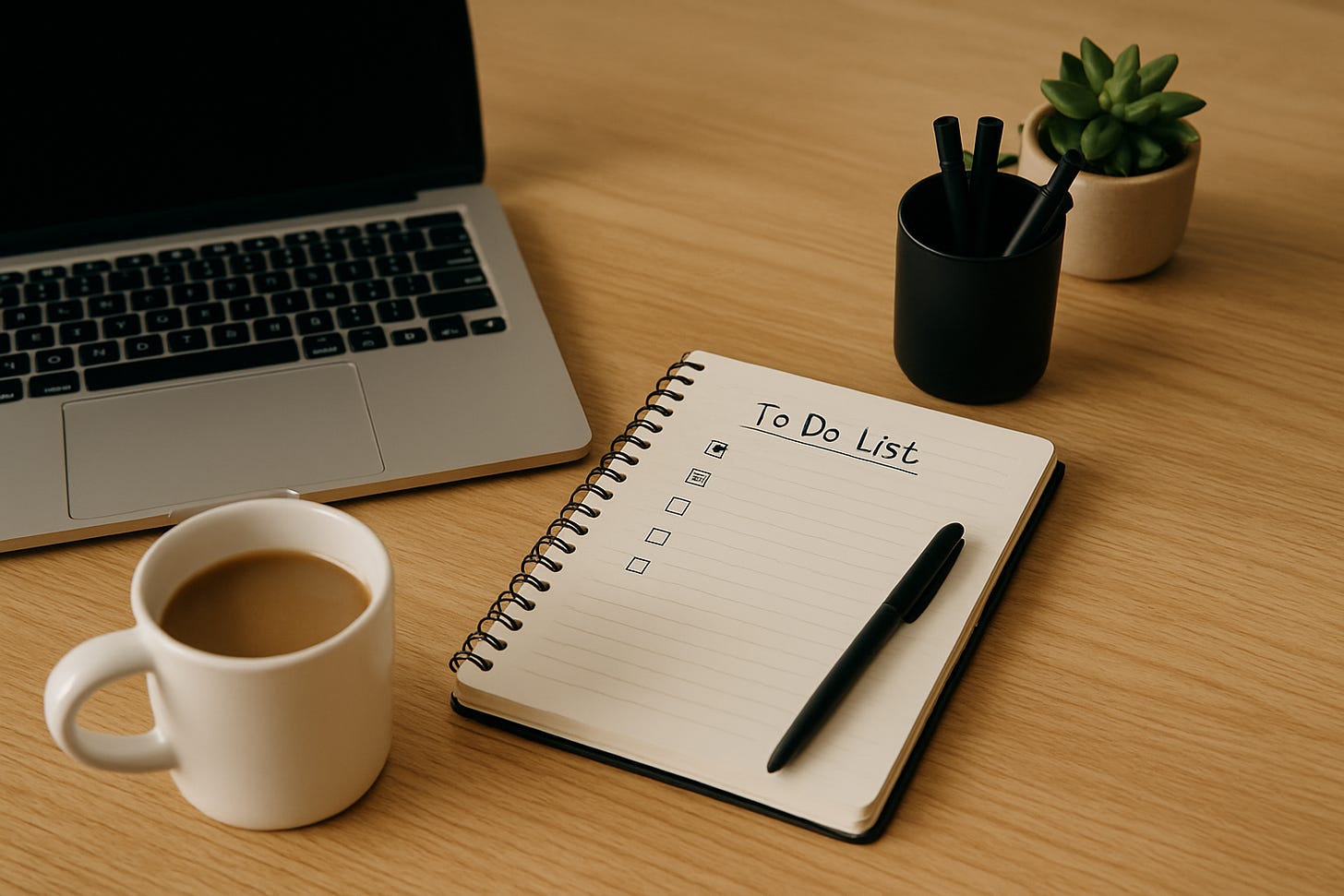Edition#3 Before You Dive In!
Things to know in your PhD first year that your future will thank you for.
Hey Reader,
The first year of a PhD isn’t about publishing papers or producing perfect ideas. It’s about learning how to ‘be’ a researcher: slowly, awkwardly, and often with a mix of excitement and existential dread.
It’s the year of figuring things out: how to read deeply, write without spiraling, manage your time (and your references), and stay grounded while everything around you feels a little uncertain.
If you are in that phase or know someone who is, here are a few things that can make the journey gentler and more manageable.
📃 Figure out your style of working
What works best for you, do you prefer to work early mornings, late nights, late afternoons. Define your time zone when you have highest concentration. This will help you plan your days better and get into structure and predictable schedule.
📃Set up tiny systems
Figure out and develop small habits that are energy saving and will bring in efficiency in your work.
Because your brain deserves a break.
Reference manager > memory (trust me, future you will cry tears of gratitude).
Weekly writing habit > end-of-semester panic (1 paragraph a week still beats a meltdown in May).
📃Make peace with reading 100 things to write 1 paragraph
It’s not inefficiency. It’s research.
And yes, your drafts will look like chaos before they start making sense.
📃 Become familiar with your supervisors' expectations
Have a frank conversation with your supervisor on understanding expectations on timelines, structure and strategy of your research work. Insights from conversations can help in research planning.
📃 Network
Don't wait to reach middle or advanced stages of PhD to start networking. In middle of data collection, analysis and thesis writing you will barely have time and mind space to work on creating your network. Start creating it in earlier stages of your Ph.D. and strengthen and leverage it as you move closer to job market entry stage.
📃 Plan your finances
Your scholarship/ stipend will be your income for couple of years. Work on budgeting and planning your finances. It's never too early to start saving and investing.
📃 Form a strong support group
PhD mostly is an independent, yet lonely journey and you need a strong support group for your own good later as you move ahead. Create one!
📃 Set a schedule/routine of working
I made a costly mistake of taking first year of PhD for granted thinking it's just the beginning and I have so much time at hand. I would just float along rather than consciously planning my day. Only later I realized I could have extracted so much more from that time because it's least stressful year, had I planned my days better.
Getting into routine early on has immense benefits in terms of productivity and ensuring smooth transitions to next stages.
📃 Read a lot
Cannot over-emphasize this! Later stages will be so much about action: data collection and cleaning, analysis, writing, editing, publishing that you will not have so much luxury at hand to read literature on your work peacefully and to heart's content. Read papers, journals, non-academic works. All that you read will feed into your research ideation and planning process.
📃 Write a lot
Don't wait for the 'thesis writing' stage to arrive to start writing. Very likely you will be too exhausted to start writing if you haven't written earlier. Also, the stress of writing a long thesis can be stressful leading to procrastination. So, get into the writing loop right from start. It can be 1 paragraph ,100 words every day. Document your thoughts, a new perspective you came across, that research paper you have read. You will avoid writer's block later on when you are required to actually write your thesis.
No one has it all figured out in year one and that is okay!
It’s messy, it’s confusing, and at times, it’s incredibly lonely. But it’s also the beginning of a journey that can change how you think, grow, and see the world.
I write more about the unspoken challenges, emotional, mental, and very human side of doing a PhD in my newsletter Decoding the Doctorate. It’s now read in 25 countries and growing with every shared story. If you were shared this article, you can subscribe below to receive it directly in your inbox. I send out weekly edition every Wednesday at 6 PM.
Also, do you think this will resonate with someone you know? I would love for you to share with them:)
Also, got questions, doubts, or just need to talk it out? Reach out anytime:)
Have a good rest of the week!
Warmly
Mridul



thanks for the helpful ideas and tips:)